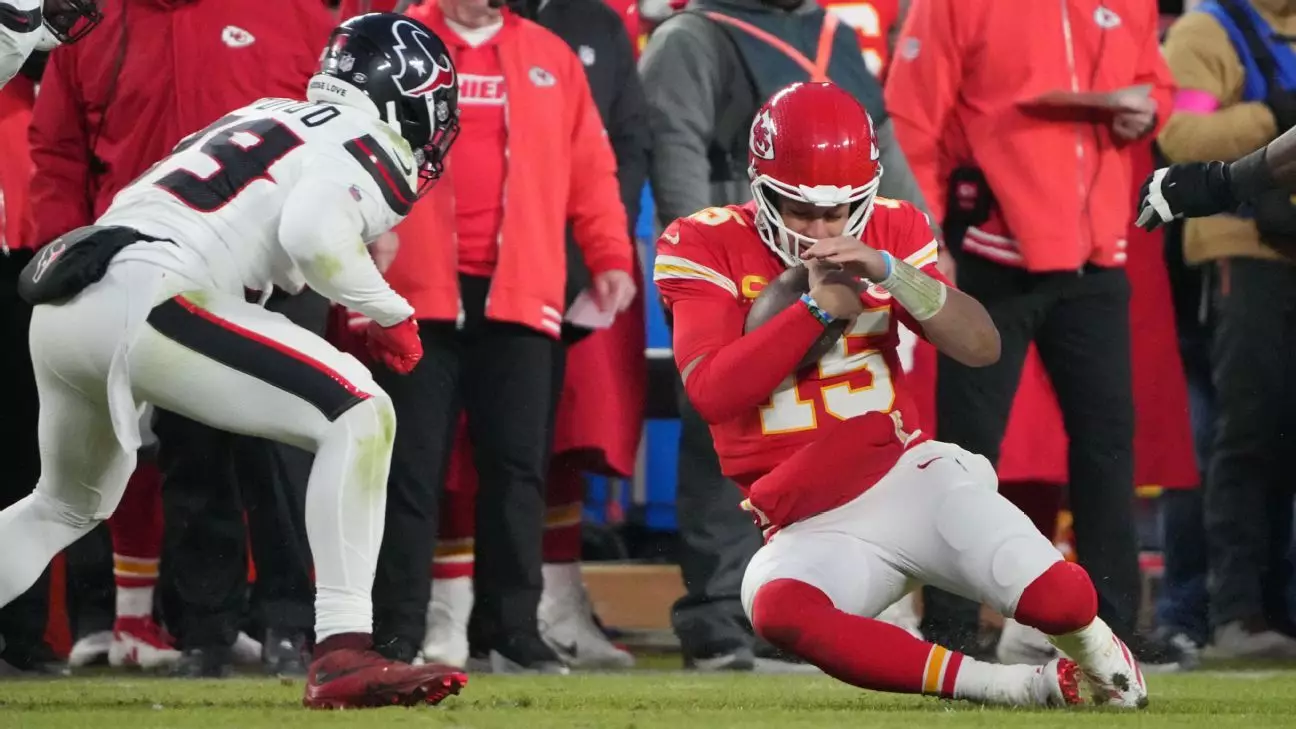The discussion surrounding officiating in the NFL has been a hot topic for years, particularly when it comes to star quarterbacks like Patrick Mahomes of the Kansas City Chiefs. Recent reports indicate that the league may expand its replay assist rules, which could fundamentally alter how quarterback plays are handled, especially concerning unnecessary roughness penalties. As the league prepares for an influential offseason, now might be the time to evaluate what these changes mean for the integrity of the game and how they could affect quarterbacks, defenders, and the overall flow of play.
Introduced in 2021, NFL replay assist was designed primarily to rectify egregious officiating errors during specific game situations. The mechanism allows replay officials and select members of the officiating team to weigh in on contentious calls, based on clear and apparent visual evidence regarding instances like the ball’s spot or whether a pass was complete. However, the implementation has been somewhat limited, prompting criticism from various stakeholders. The planned expansion in 2024, which may include quarterback slides and hits against quarterbacks, speaks volumes about the growing concern around player safety versus the notion of fairness in officiating.
One area of contention is the inconsistency in calling penalties when quarterbacks transition from a passing role to that of a runner. This was most evident during an AFC divisional playoff game, where Mahomes drew a 15-yard unnecessary roughness penalty while sliding. Industry experts like Troy Aikman have gone on record criticizing the decision, suggesting that these calls need clarity and objectivity. Aikman’s disdain for the double standard around quarterback calls has been echoed by fans and analysts alike, indicating a desire for a more standardized approach to judging similar scenarios across the league.
The expected discussions within the NFL’s competition committee could have wide-ranging implications on how the game is played. The proposed expansion of replay assist to scenarios involving quarterback slides aims to enhance safety while providing greater clarity to referees on the field. However, this intent raises questions about the balance between player protection and the need for defenders to execute their roles without the fear of excessive penalties.
Teams seem to be acutely aware that the rules may indeed favor quarterbacks like Mahomes. Will Anderson Jr., a prominent pass rusher for the Houston Texans, noted that his team felt they were at odds with officiating during their recent matchup against the Chiefs. A sentiment expressed by defensive players reflects an overall frustration—many feel that they are no longer allowed the same freedoms they once had to challenge quarterbacks, which could affect their game tactics going forward.
Furthermore, the debate about whether the officiating greatly favors star players like Mahomes has persisted. Mirrors are held up not just to the players but also to the men in striped jerseys who wield the power to control the game’s flow through their calls. Mahomes himself has refuted claims of preferential treatment, asserting that referees strive for fairness. Yet, perception often overshadows reality, particularly when high-stakes games are involved, and calls can become a focal point for discussions around competition integrity.
As the NFL gears up for a pivotal offseason, one can’t help but ponder what the future may hold for officiating within the league. Expanding replay assist could indeed serve as a tool for creating not just a safer environment for quarterbacks but also an opportunity for the league to reinforce its commitment to fair play. However, it also challenges the traditional roles of defenders, urging them to adapt to an evolving game where the rules to protect players are still being fine-tuned.
Ultimately, the implications of this expansion reach far beyond just one player or team. They could redefine how the game is fundamentally engaged from the ground up, compelling both offensive and defensive units to reconsider their approaches. While the league aims for objectivity, there is a tightrope walk to maintain between safeguarding players and ensuring that the game remains competitive and engaging for fans. The outcome of these discussions, set for March at the NFL’s annual meeting, will likely chart a new course for how the league interprets and enforces the rules moving forward.


Leave a Reply